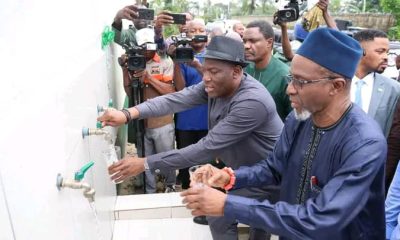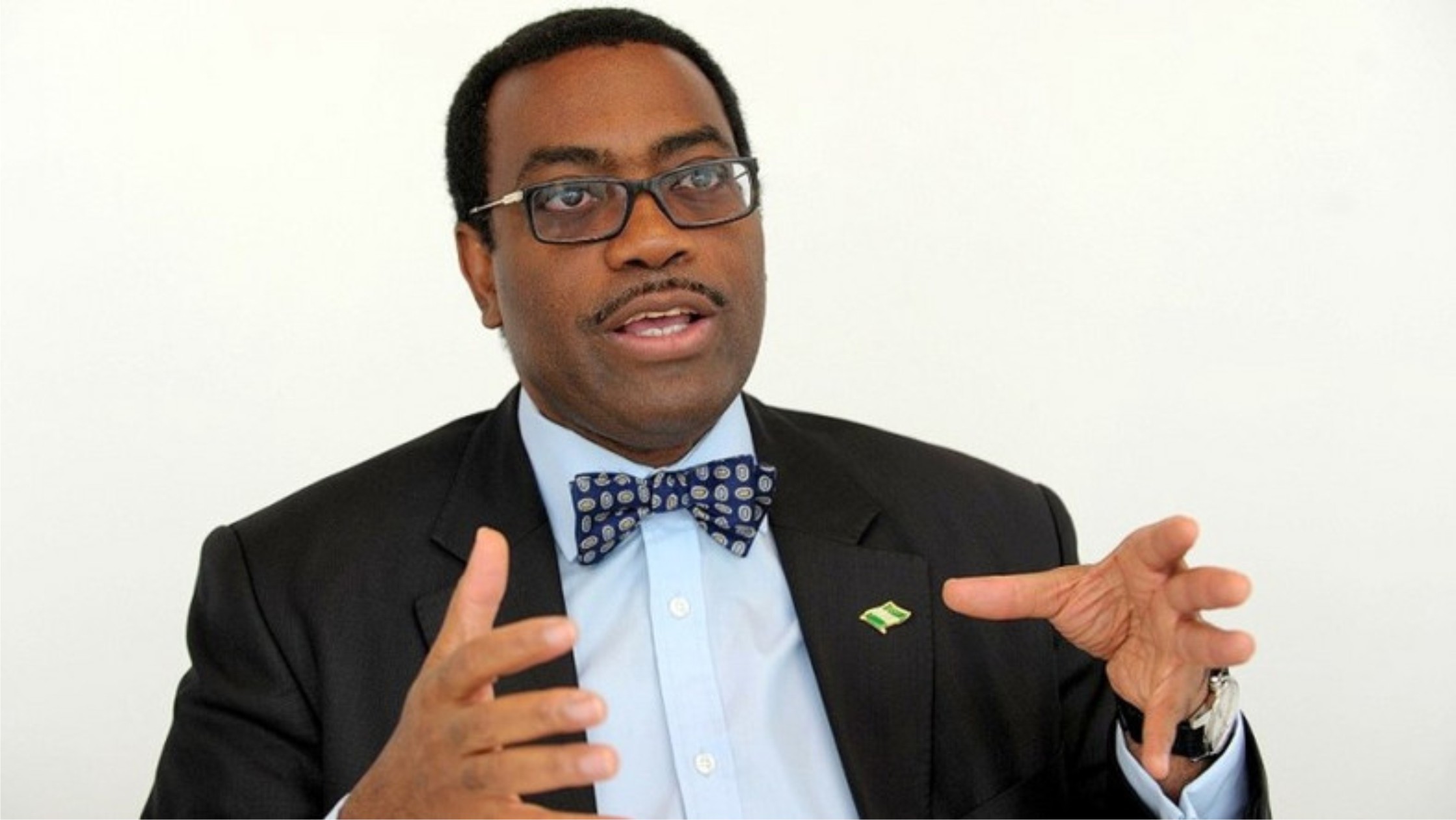Opinion
The Unfulfilled Promises
“Desperate”,
“Frustration”, “Unfortunate”, these are some of the words used by many people to describe the action of some youth in Kano State who visited their National Assembly representatives with anger last week.
The youth numbering about 1,000 reportedly burnt down the residence of Senator Kabiru Gay, in Gaya Local Government Area of the State and the campaign office and poultry farm of the House of Representatives member from the area, Alhaji Abdullahi Mahmoud over alleged failure of the two politicians to fulfil the promises they made to them during the electioneering campaigns in 2015.
To some, that was a bold step to take to compelling our politicians to be responsible and accountable to the people who elected them. Before and during elections, these politicians besiege the people, making all kinds of promises. They promise to build bridges even where none is needed only to end up not fulfilling them.
A famous lawyer and social commentator, Mr Liborous Oshoma succinctly describes their attitude thus, “Nigerian politicians, like their counterparts in other African countries capitalize on the gullibility and vulnerability of the average person in the country to make promises during campaigns simply because such promises are not scrutinized and tested for possibility of being fulfilled by the people.
“That is why you hear slogans like, ‘we would turn the country to a massive construction site, we will provide access road to every community’ and the people, without asking for modalities and possibilities will chorus, “yea”.
From the federal to the state to the local government level, the situation is the same- politicians deceive and lie to the people. A would-be counselor will promise free education to all the students in his community, promise to tar all their roads even when he is not capable of doing so. Governorship candidates will vow to improve the living standard of the people, bring quality development to the state, only for him to end up enriching himself and his cohorts when he assumes office. The same goes with lawmakers both at the state and federal levels and indeed, almost all politicians.
In Nigeria today, there is anger and bitterness. You listen to phone in programmes on radio stations and you hear people pour out their anger over worsening condition of living in the country. Of course, some realize that there is global economic melt down, but they are not pleased that nearly one year after President Mohammadu Buhari and the ruling political party promised the people “change”, it has been hardship all the way.
During 2015 election campaigns, Buhari promised to solve the problem of unemployment in the country and create one million new jobs annually. While the citizens wait for the fulfillment of this promise, some who have jobs are being fired everyday as many companies lay off their staff due to the harsh economy. People that were previously employed, have now joined unemployed persons.
Buhari also pledged that if elected he would fight to strengthen the country’s economy. He is constantly quoted to have said that he would ensure that the naira was equal to the dollar in value though he was denied. Unfortunately, instead of this promise materializing, the value of naira has continued to dwindle. Today, a dollar goes for N350,00.00. Expectedly, this has affected the cost of virtually everything in the market, our’s being a consuming nation instead of a producing one.
To worsen the situation, instead of tackling the problem of perennial fuel scarcity as he promised, Nigerians witnessed the worst fuel scarcity in the history of the country in the past three months. Fuel was sold for as high as N350.00. People spent hours at petrol stations in search of fuel. Today, the official pump price of fuel has been increased to N145.00 from N86.50k. This is against the promised reduction of the price to N40.00. The contentious subsidy on petroleum products has also been removed. This has brought untold hardship to the citizens though government keeps assuring that the decision is in the best interest of all and sundry.
The APC’s presidential candidate further promised improved power supply, rescue of abducted Chibok girls, eradication of corruption, stopping insurgency and many more. On the issue of curbing Boko Haram insurgency, many have praised the effort of the federal government but have also wondered why adequate measures are not taken to check the wanton killing of innocent Nigerians by Fulani herdsmen terrorizing farming communities across the country.
Some people are of the opinion that it is still early to judge the president, saying the present government inherited a lot of rot in the system and should be given a little time to clear the mess. While we wait patiently for this to be done and for the APC-led government to take us to the promised land, it is advisable that certain palliative measures be taken to cushion the effect of the fuel price increase and the subsidy removal on the citizens. If nothing is done urgently, the last week’s incident in Kano might be the beginning of many Nigerians who might take it out on politicians who have failed to make life less miserable for them. Yet these politicians are living large.
Our leaders must learn to be responsible enough to keep to their words. Why make promises you can’t keep?
Calista Ezeaku
Opinion
Kids Without Play Opportunities

“All work and no play”, its said, “makes Jack a dull boy.” Despite this age-long maxim that recognises the role of play in early childhood development, play appears to be eluding many Nigerian kids. The deprivation of play opportunities comes in different forms for the Nigerian child depending on family’s social setting or status, but the effect is much the same. For children in Nigerian poor families, life is becoming as much a hassle as it is for their struggling parents. Due to harsh economic conditions, many families resort to engaging their kids prematurely in trading activities especially in hawking, to help boost family revenues, when these kids should be enjoying leisure after school. Some of these children barely attend schools while being forced to spend much of their childhood hustling in the streets. For children from well-off families, time could be as crunchy as it is for their busy parents when, obsessed with setting agenda for the future of their kids, parents arrange stringent educational regiment too early for their kids.
These group of children are made to get-off the bed by 5.30am every weekday, get ready for private school buses that call at 6.00am, otherwise report by however means to school at 7.20am.The situation is worse for kids in the city of Lagos where the need to beat urban traffic rush-hours is very high. Most children are further subjected to extra hours of lessons after school at 2.00pm, only to be released with loads of homework. On many occasions children who leave home for school at 6.30am get back by 3.30pm. With hardly enough time to eat, do school assignments and take afternoon naps, these children hardly had time for plays before dinners. In Nigeria, kids of ages between 3 and 12 spend averages of 9 hours a day and 45 hours a week to and from schools, and additional hours doing home assignments and domestic jobs, whereas their peers in developed countries spend about half that duration and have more time for leisure.
Any remaining spare time left after school work or street hustle is further stolen, when kids who usually are fascinated by gadgets, are exposed to household electronics like phones, tablets and gaming consoles. Electronic games may create a sense of leisure, but the difference with human interactions is that kids doing games interface mostly with machines or with programme structured in ways that entrap a child’s pysch directionally, according to the game’s programming, in ways that may not encourage independent thinking. Moreso, attraction to such gadgets displaces kids’ attention from important television and radio programmes. The prevalent tight, academic schedules for some Nigerian kids, though intended for academic excellence, encroaches on childhood leisure time needed to achieve an all-round childhood development, and could make children to resent formal education altogether. Besides, academic excellence or economic pursuit, is not all there is to living a well-nurtured life.
Children’s leisure time, defined as time left over after sleeping, eating, personal hygiene and attending school or day-care, is very crucial to childhood development. Sociologists recommend that children should have at least 40 per ceny of the day as leisure. According to Berry Brazelton, a former pediatrician at Harvard Medical School, “Play is the most powerful way a child explores the world and learns about him or herself.” Unstructured play encourages independent thinking and allows the young to negotiate their relationships with their peers, and in the process build self-confidence and self-control. Play is one of the important ways in which young children gain essential knowledge and skills. Leisure time enhances learning as fun enables children to learn at their own level and pace. Young children naturally explore and learn many skills by making cognitive connections from events that catch their attention.
Unstructured plays help children developed their cognitive, physical and communication skills that make them acquire social qualities necessary in navigating relationships in adult life. Plays enable children assess how others feel and learn perspectives as well as empathy through observing differences in facial expressions, body language and even tone of voice, which helps them copy how to express themselves to others, and therefore develop socially acceptable behavours that build relationships. In cooperative activities, children willingly take things in turn and may delegate roles. Children can also share the glory of winnings through competitive games, which is all great for working together in task sharing. Aside encouraging parents to ensure adequate leisure time for their kids at home, schools should make plays and exercises an integral part of the educational curriculum. The educational curriculum set by the Nigerian Educational Research and Development Council (NERDC) includes specific training durations and break periods, as well as sporting activities, as part of the school system.
Due to poor government funding, sports in public schools have declined, while most private schools lack sporting infrastructure or even play grounds. These make recreational activities and sports implementation almost impossible in schools. Also, the increasing rate of urbanisation in Nigerian communities is gradually eroding ancient playgrounds, while established urban centres have lost community playgrounds. With tightening apartment spaces now being the norm in most urban residential areas, many kids are forced to wriggle within burglary-proof enclosures. Nigerian governments and the relevant agencies should ensure that existing child labour protection laws, educational and urban development codes are implemented in the country, to enable proper nurturing of children as the future stakeholders of our society. Private schools, especially, should be supervised to ensure they follow the educational curriculum standards set by NERDC.
In a bid to impress parents and draw more patronage as better option than public schools, private schools, most of whom operate in cramped environments, have continued to set high regiments of training schedules beyond the capacity of most kids, and even encourage enrollment of pre-school age kids who can not sit still to listen for an extended periods of time. Schools, from creche to secondary levels, without playgrounds and recreational facilities should not be allowed to operate, and should be made to understand and implement appropriate curriculum and training durations. Many Nigerian kids, whether from rich or poor families, appear to have been set-up inadvertently, in the same leisure denial that affects their parents. All work and no play could lead to some messed-up kids who grow up not understanding social cues, and being unemotional and self-centered, manifest later as obsessive-compulsive adults.
By: Joseph Nwankwo
Opinion
Congratulations Fubara, Joseph Of Rivers State

We thank God who is above all human contrivance and arrogance. Congratulations, Your Excellency Amaopusenibo Sir Siminalayi Joseph Fubara. Your victory takes us back to the Bible as a living document of a God that rules in the affairs of all His creation. In a manner of speaking, welcome back from your first war with Phillistines, Your Excellency! Yes, first example is David and Goliath! And like David, Your Excellency stands over Goliath in victory. But that is not enough. Our real enemy is that Your Excellency is Governor of a State with a wretched economy. Indigenes of Your State are today reduced to battalions of beggars waiting for who will hire their loyalty on the usual “pay-as-you-go” basis.
Your Excellency, it brings us to another Bible- based parallel. Conscientious Rivers indigenes above 50, should identify with and commit our all to this second parallel. It is to liberate the economy and people of Rivers people from 23 years enslavement and poverty, for us to regain our dignity and pride. When the economy of Egypt was drifting into a disaster zone, even Pharaoh did not know it. He also did not know what to do. But God sent a Joseph to build the economy into a fortress of good fortune that overcame the economic and social disaster Egypt did not know was ahead. Your Excellency for 23 years, Rivers State has been ruled without any logical, credible and consistent PLAN of how to overcome mass poverty from our dehydrated local economies.
Your Excellency, Rivers State cannot survive one month without Federal allocation! So called IGR only about 10 per cent of Federal allocation.It is also not based on what we produce but on tax from other people’s productivity that pass through our State. Pharaoh did not know what to do in the case of Egypt. May it please God to position another Joseph in Governor Siminalayi Joseph Fubara to heal Rivers State and build an economy that all Africa will come to access in order to chart a new course out of worsening economic hardship that is caused by near zero investment in productivity and endemic reckless looting. They are the twin chambers nursing a corporate cancer unfolding across Nigeria and Africa. The hard work begins today, Your Excellency.
We need an economic blueprint that will enrich every Rivers senatorial district from investment to grow productivity and to enrich every Rivers person from career-based productive labour, just as Pharaoh was enriched by Joseph’s economic Blueprint. Let Rivers State stop the trend of waiting the lives of young Rivers people recruited by Phillistines into cultism, thuggery and easy money, as a career. These Phillistines believe they have only lost one phase of many legal battles and battles by other means. But from comments in the public media, their eyes are fixed on 4-years of war and more! Your Excellency, we the people will not let you forget what you owe us. We have to make unbelievers see that your leadership is different and that we are uprooting the old order of an unproductive Feudal System. That system makes a few persons and their cronies to monopolise our collective wealth, while the majority are left in misery. Let’s put an end to enslavement by cabals and mass poverty in Rivers State. That is when the Phillistines will surrender.
By: Amaopusenibo Brown
Opinion
Reserved Seats for Women: A Step Forward
-

 Niger Delta5 days ago
Niger Delta5 days agoC’River Communities Seeks Govt Intervention In Humanitarian Crisis
-

 Nation5 days ago
Nation5 days agoMinister Commissions Four Water Projects In Ogoniland …Harps On Community Ownership
-
City Crime5 days ago
test
-

 Business1 day ago
Business1 day agoAfDB Secures N3.4trn For Agro-industrial Processing In Nigeria
-

 Featured1 day ago
Featured1 day agoNigeria Accounts For 70% Of 11m Illegal Arms In W/Africa
-
Politics1 day ago
Rivers LG Polls: IPAC Asks Political Parties Not To Participate
-
Politics1 day ago
APC Doesn’t Have Money, Relies On Elected Members For Funds – NWC Member
-

 News1 day ago
News1 day agoTinubu Deserves Credit For Stabilising Economy – Okonjo-Iweala ?

